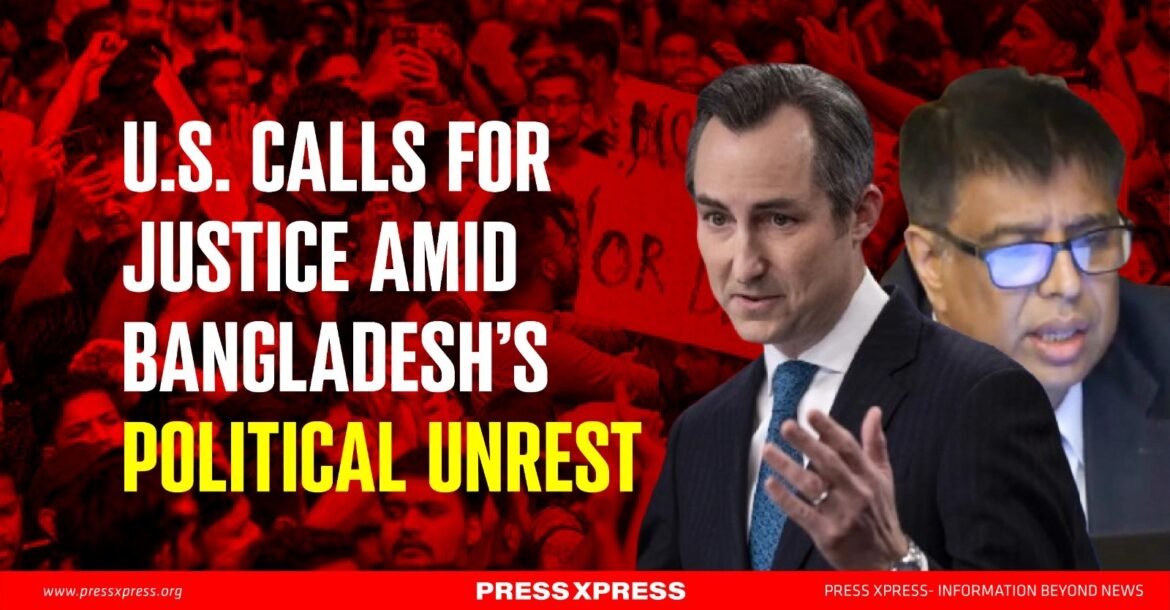In a recent briefing on October 16, Press Xpress questioned Matthew Miller, spokesperson for the U.S. State Department, about key political and religious issues affecting Bangladesh.
The questions, posed by Dastagir Jahangir, Bureau Chief for Press Xpress USA, addressed the consequences of anti-Hasina protests and incidents surrounding the Hindu festival of Durga Puja.
Miller first responded to a question on the aftermath of the anti-Hasina movement.
Reports suggest that, between August 5 and August 8, violence and clashes led to over 3,000 police officers killed, the shutdown of more than 400 police stations, and targeted attacks on Awami League members. Jahangir asked if the U.S. would urge the Bangladeshi government to ensure justice for all affected, regardless of political affiliations, especially considering a recent decision by the Home Ministry to halt prosecutions linked to the protests.
Miller reiterated the U.S. stance against violence in all forms, highlighting that accountability should apply to all individuals involved. “There is no excuse for violence against peaceful protesters, or by those protesting,” he emphasized.
His statement implies a balanced view on justice, suggesting that the U.S. expects the rule of law to be upheld without favoritism. This response indicates a broader message from the U.S. regarding Bangladesh’s need for impartial governance, which has drawn attention amid reports of political unrest.
In a follow-up question, Jahangir addressed religious tensions during Durga Puja, one of Bangladesh’s largest Hindu festivals.
Reports indicate disruptions caused by members of Hizb ut-Tahrir and Jamaat-e-Islami, who allegedly forced the recitation of Quranic verses on the Durga Puja stage. Jahangir asked for the U.S. perspective on these incidents and whether it would engage with Bangladesh to protect religious freedoms.
Miller reaffirmed the U.S. commitment to religious freedom globally, stating, “We are committed to religious freedom in Bangladesh and elsewhere.” However, he refrained from commenting specifically on the Durga Puja incidents, noting he would seek further details. This response underscores the U.S.’s support for religious rights, while also hinting at a careful approach to addressing such sensitive issues. The lack of a direct stance on these specific incidents may suggest that the U.S. is taking a cautious approach, perhaps influenced by Bangladesh’s increasing strategic importance in South Asia.
The questions from Press Xpress reflect broader concerns about Bangladesh’s political and social climate, touching on issues of judicial accountability and ensuring of minority rights. As the U.S. monitors these developments, its statements reflect a willingness to engage while revealing some hesitancy to challenge Bangladesh openly on these points.
The interactions suggest that the U.S. is aiming to balance its advocacy for human rights with the complexities of its relationship with Bangladesh, a nation situated within a region of growing geopolitical interest.


